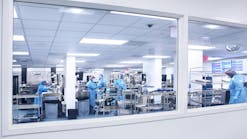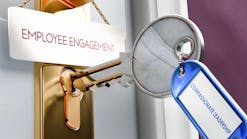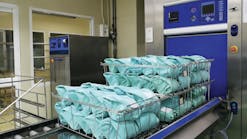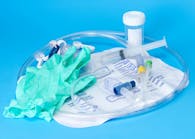Back in mid-February, immigrants around the nation stayed home from work and school to protest President Trump’s vacillating and volatile immigration “policy” (deportations, blah, blah, blah, big wall, blah, blah, blah, close the borders, blah, blah, blah) and “to demonstrate how important they are to America’s economy,” according to an Associated Press report. Further, “many businesses closed in solidarity, in a nationwide protest called A Day Without Immigrants.”
One wonders what immediate and long-standing impact the protest made — whether employees and students somehow were penalized for going AWOL without “calling in sick.”
Certainly, uniformed police officers can contract “blue flu,” laborers can “strike,” professional athletes can pout and whine for more compensation to help them endure their multimillion-dollar-a-year poverty-level contract that fails to befit their lifestyles.
Yet this civil protest, which made a point (at least garnering some publicity) and maybe nicked the economy, ignited thoughts of a healthcare group important to a hospital’s economy and a patient’s health.
Yes, as IAHCSMM holds its 59th Annual Conference & Expo in Nashville during the second week in May, we’re talking about the unsung, seemingly under-appreciated sterile processing and distribution soldiers in SPD.
Imagine “A Day Without SPD.” No, we at Healthcare Purchasing News, which has been with IAHCSMM consistently for 40 of those 59 years, are not advocating that dedicated SPD staffers simply walk out in “mock” rebellion to the lack of appreciation by the C-suite on down through clinical, financial and operational fellow executives and staffers.
But, what if, by some dispensing of reality and suspension of belief, (alternate universe storylines dominated the sci-fi genre long before alternative facts became an acceptable concept in media and politics), SPD simply vanished? People, equipment, function, footprint.
What would a hospital do?
You might say that single-use product manufacturers gleefully would welcome and salivate over the prospect of a gilded financial age for them. Imagine the windfall profits … at least at first … until the hospitals, motivated by stingy payers that control the market, had to figure out how to deal with the budgetary fallout.
Someone would have to clean, decontaminate, high-level disinfect and sterilize instruments and equipment used in medical/surgical procedures. Yes, admit it. Many facilities would reuse SUDs at least once or twice to relieve the fiscal pressure.
But would those products be reprocessed well enough? As well as what SPD could have done?
Would doctors and surgeons and nurses be willing to risk it? Would the hospital CEO, CFO, CMO and CNO? What about the insurance companies?
Imagine the resulting infectious outbreaks from improperly reprocessed products. Imagine the ensuing lawsuits for negligent care.
Imagine the hospital CEO’s wife or husband having to go into life-ensuring emergency surgery on that particular day. Imagine the insurance company CEO’s wife or husband.
Much can be ballyhooed about SPD’s importance to healthcare operations and high-quality patient care.
But this exercise in conceptual thought isn’t meant to be critical, pandering or patronizing to anyone. It’s meant to be a sincere wake-up call.
SPD needs and deserves respect. Those who perform and practice within that field have earned it — no matter their educational level. Pluck a blue-blooded Wharton-trained MBA graduate from the C-suite and place him in SPD for a day, pitting him against a well-trained sterile processing tech with a high-school diploma to reprocess endoscopic instruments to be used next on a member of a prominent wealthy donor family of the hospital. If that family were given the choice, whose reprocessed products will they want used on their relative? Whose do you think?
For IAHCSMM members, it should be about the three-legged stool. The legs stand for quality, safety and respect (for colleagues, patients and the profession).
Quality is instrumental. You achieve it through SPD certification, validated IFU implementation (and preferably standardization), and fluid collaboration with Surgical Services/Infection Prevention. This formula represents one of the true pathways to healthcare reform. And it starts in SPD.

Rick Dana Barlow | Senior Editor
Rick Dana Barlow is Senior Editor for Healthcare Purchasing News, an Endeavor Business Media publication. He can be reached at [email protected].





